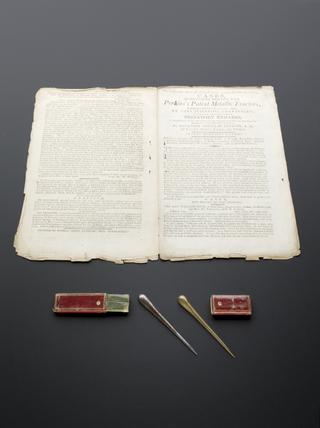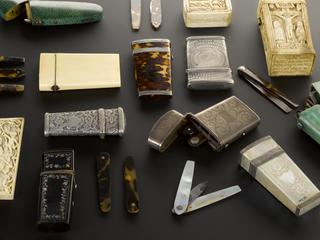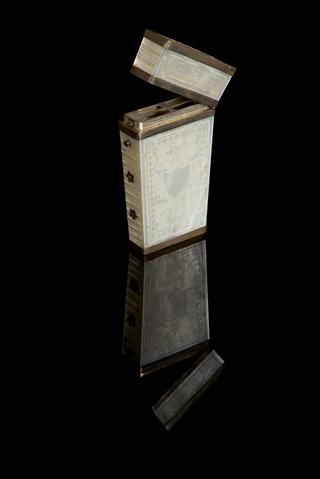
Jugum penises, United Kingdom, 1880-1920
- Made:
- 1880-1920 in United Kingdom

Jugum penis, an anti-masturbatory device also known as a spermatorrhoea ring, steel, plated, 1880-1920
Imagine you’re a young man living in Victorian Britain. You have recently started feeling anxious, tired and irritable. What’s wrong, and how could it be treated? Your doctor might ask about your sexual habits, because these were the symptoms of a disease known as spermatorrhoea.
And what caused this unsettling disease? Too much masturbation. Swiss doctor Samuel Auguste Tissot had published his theory on the devastating effects of self-stimulation in 1758. Masturbation, he claimed, was more dreadful than smallpox because it robbed the body of sperm – a carrier of vital energies. By the Victorian period, such opinions had entered the medical mainstream, with nocturnal emissions seen as characteristic of the disease.
What was the treatment? Anti-masturbation devices were developed, such as these jagged metal rings fitted to the base of the penis with a screw or clip catch. Women too were prescribed similar gadgets. Were such vicious-looking treatments necessary? Masturbation was considered a serious threat to physical and mental health, leading to weakness, madness, and potentially even death.
Medical practitioners now agree that masturbation has no harmful side effects, but the idea of spematorrhoea lives on, with websites selling herbal cures. But fear not, your general practitioner does not have a drawer full of these rings, ready to prescribe the minute you feel a bit run down. So you can sleep easy tonight.
Details
- Category:
- Therapeutics
- Collection:
- Sir Henry Wellcome's Museum Collection
- Object Number:
- A159312
- Materials:
- steel (plated)
- type:
- jugum penis
- credit:
- Wellcome Trust (Purchased from Stevens)


